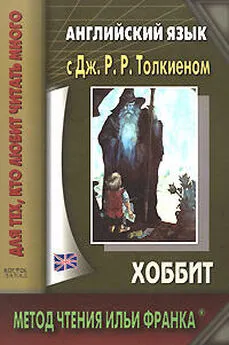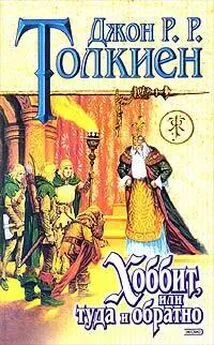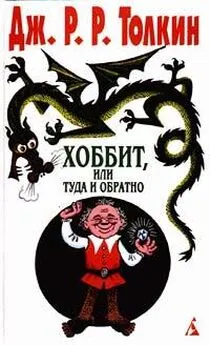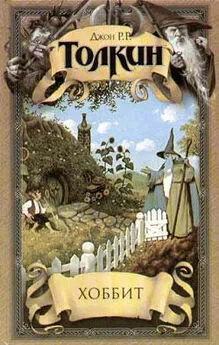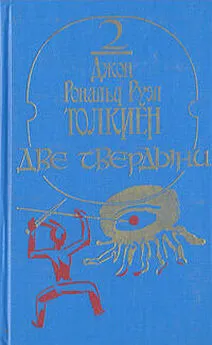Джон Толкиен - Английский язык с Дж. Р. Р. Толкиеном. Хоббит
- Название:Английский язык с Дж. Р. Р. Толкиеном. Хоббит
- Автор:
- Жанр:
- Издательство:АСТ, Восток-Запад
- Год:2008
- Город:Москва
- ISBN:978-5-17-048593-2, 978-5-478-00597-9
- Рейтинг:
- Избранное:Добавить в избранное
-
Отзывы:
-
Ваша оценка:
Джон Толкиен - Английский язык с Дж. Р. Р. Толкиеном. Хоббит краткое содержание
В книге предлагается произведение на английском языке Джона Р. Р. Толкиена «Хоббит», адаптированное (без упрощения текста оригинала) по методу Ильи Франка. Уникальность метода заключается в том, что запоминание слов и выражений происходит за счет их повторяемости, без заучивания и необходимости использовать словарь.
Пособие способствует эффективному освоению языка, может служить дополнением к учебной программе.
Предназначено для студентов, для изучающих английский язык самостоятельно, а также для всех интересующихся английской культурой.
Пособие подготовила Ольга Ламонова.
Английский язык с Дж. Р. Р. Толкиеном. Хоббит - читать онлайн бесплатно полную версию (весь текст целиком)
Интервал:
Закладка:
midsummer [ˈmɪdsʌmǝ] war [wɔ: ] hoard [hɔ: d] cleaver [ˈkli: vǝ] foe [fǝʋ]
I wish I had time to tell you even a few of the tales or one or two of the songs that they heard in that house. All of them, the ponies as well, grew refreshed and strong in a few days there. Their clothes were mended as well as their bruises, their tempers and their hopes. Their bags were filled with food and provisions light to carry but strong to bring them over the mountain passes. Their plans were improved with the best advice. So the time came to midsummer eve, and they were to go on again with the early sun on midsummer morning.
Elrond knew all about runes of every kind. That day he looked at the swords they had brought from the trolls’ lair, and he said:
“These are not troll-make. They are old swords, very old swords of the High Elves of the West, my kin. They were made in Gondolin for the Goblin-wars. They must have come from a dragon’s hoard or goblin plunder, for dragons and goblins destroyed that city many ages ago. This, Thorin, the runes name Orcrist, the Goblin-cleaver in the ancient tongue of Gondolin; it was a famous blade. This, Gandalf, was Glamdring, Foe-hammer that the king of Gondolin once wore. Keep them well!”
“Whence did the trolls get them (откуда же тролли достали их), I wonder (мне интересно)?” said Thorin looking at his sword (глядя на свой меч) with new interest (с новым интересом).
“I could not say (я не могу сказать), ” said Elrond, “but one may guess (но можно предположить) that your trolls had plundered other plunderers (что ваши тролли обокрали других грабителей), or come on the remnants of old robberies (или напали на остатки старых грабежей) in some hold (в каком-либо логове) in the mountains of the North (в горах Севера). I have heard (я слышал) that there are still forgotten treasures of old (что все еще есть забытые старинные сокровища) to be found in the deserted caverns (которые можно найти в заброшенных пещерах) of the mines of Moria (в рудниках Мории), since the dwarf and goblin war (со времен войны между гномами и гоблинами). ”
Thorin pondered these words (Торин обдумывал эти слова). “I will keep this sword in honour (я буду содержать этот мечи в чести), ” he said.
“May it soon cleave goblins once again (скоро да порубит он гоблинов снова)!”
“A wish that is likely (желание, которое, похоже) to be granted soon enough (сбудется достаточно скоро; to grant — даровать, удовлетворять ) in the mountains (в этих горах)!” said Elrond. “But show me now your map (а теперь покажите мне вашу карту)!”
He took it (он взял ее) and gazed long at it (и долго смотрел на нее), and he shook his head (и он качал своей головой); for if he did not altogether approve of dwarves (так как, если он и не одобрял в целом гномов) and their love of gold (и их любви к золоту), he hated dragons and their cruel wickedness (он ненавидел драконов и их жестокие злодеяния), and he grieved (и он горевал) to remember the ruin of the town of Dale (вспоминая руины города Дейла) and its merry bells (и его веселые колокола), and the burned banks (и обожженные берега) of the bright River Running (яркой Реки Быстротечной).
whence [wens] remnant [ˈremnǝnt] wickedness [ˈwɪkɪdnɪs]
“Whence did the trolls get them, I wonder?” said Thorin looking at his sword with new interest.
“I could not say, ” said Elrond, “but one may guess that your trolls had plundered other plunderers, or come on the remnants of old robberies in some hold in the mountains of the North. I have heard that there are still forgotten treasures of old to be found in the deserted caverns of the mines of Moria, since the dwarf and goblin war. ”
Thorin pondered these words. “I will keep this sword in honour, ” he said. “May it soon cleave goblins once again!”
“A wish that is likely to be granted soon enough in the mountains!” said Elrond. “But show me now your map!” He took it and gazed long at it, and he shook his head; for if he did not altogether approve of dwarves and their love of gold, he hated dragons and their cruel wickedness, and he grieved to remember the ruin of the town of Dale and its merry bells, and the burned banks of the bright River Running.
The moon was shining (сияла луна) in a broad silver crescent (широким серебряным полумесяцем). He held up the map (он поднял карту) and the white light shone through it (и белый свет светился сквозь нее; to shine ).
“What is this (что это)?” he said. “There are moon-letters here (да здесь лунные буквы), beside the plain runes (кроме обычных рун) which say (которые говорят) ‘five feet high the door (дверь высотой пять футов) and three may walk abreast (и трое смогут пройти в ряд). ’“
“What are moon-letters (что такое лунные буквы)?” asked the hobbit full of excitement (спросил хоббит, полный возбуждения). He loved maps (он любил карты), as I have told you before (как я уже сказал вам раньше); and he also liked runes and letters (и ему также нравились руны и буквы) and cunning handwriting (и искусный почерк), though when he wrote himself (хотя, когда он писал сам) it was a bit thin and spidery (его почерк был слегка тонким и неразборчивым ; spider — паук).
“Moon-letters are rune-letters (лунные буквы — это те же руны), but you cannot see them (но их нельзя увидеть), ” said Elrond, “not when you look straight at them (когда смотришь прямо на них). They can only be seen (их можно увидеть только тогда) when the moon shines behind them (когда за ними светит луна), and what is more (и, более того), with the more cunning sort (/есть еще/ такая более хитроумная разновидность /лунных букв/) it must be a moon of the same shape and season (что луна должна быть той же формы и в тоже время года) as the day when they were written (как и в тот день, когда они были написаны). The dwarves invented them (их изобрели гномы) and wrote them with silver pens (и писали их с помощью серебряных ручек), as your friends could tell you (как могли бы рассказать вам ваши друзья). These must have been written on a midsummer’s eve (эти, должно быть, были написаны в канун летнего солнцестояния) in a crescent moon (в первую четверть Луны; crescent — полумесяц, неполная луна, серп луны; первая/последняя четверть луны ), a long while ago (очень и очень давно). ”
crescent [ˈkres (ǝ) nt] excitement [ɪkˈsaɪtmǝnt] spidery [ˈspaɪd (ǝ) rɪ]
The moon was shining in a broad silver crescent. He held up the map and the white light shone through it.
“What is this?” he said. “There are moon-letters here, beside the plain runes which say ‘five feet high the door and three may walk abreast. ’ “
“What are moon-letters?” asked the hobbit full of excitement. He loved maps, as I have told you before; and he also liked runes and letters and cunning handwriting, though when he wrote himself it was a bit thin and spidery.
“Moon-letters are rune-letters, but you cannot see them, ” said Elrond, “not when you look straight at them. They can only be seen when the moon shines behind them, and what is more, with the more cunning sort it must be a moon of the same shape and season as the day when they were written. The dwarves invented them and wrote them with silver pens, as your friends could tell you. These must have been written on a midsummer’s eve in a crescent moon, a long while ago. ”
“What do they say (что же они говорят)?” asked Gandalf and Thorin together (спросили Гэндальф и Торин вместе), a bit vexed perhaps (возможно, слегка раздосадованные; to vex — досаждать, раздражать; возмущать, сердить ) that even Elrond should have found this out first (что именно Элронд обнаружил эти /буквы/ первым), though really (хотя, на самом деле) there had not been a chance before (шанса раньше не представлялось), and there would not have been another (и не было бы и другого) until goodness knows when (до неизвестно каких пор; goodness — доброта, ценные качества; зд. заменяет слово God — Бог /чтобы не употреблять его всуе/ ).
“Stand by the grey stone (стой у серого камня) when the thrush knocks (когда застучит дрозд), ” read Elrond (прочитал Элронд), “and the setting sun (и заходящее солнце) with the last light of Durin’s Day (последним лучом света Дьюриного Дня) will shine upon the key-hole (озарит замочную скважину). ”
“Durin (Дьюрин), Durin!” said Thorin (сказал Торин). “He was the father of the fathers (он был прародителем родоначальников) of the eldest race of Dwarves (древнейшего рода Гномов), the Longbeards (Длиннобородых), and my first ancestor (и мой первый предок): I am his heir (я его наследник). ”
“Then what is Durin’s Day (тогда, что же это за Дьюрин день)?” asked Elrond (спросил Элронд).
“The first day of the dwarves’ New Year (первый день Нового Года гномов), ” said Thorin, “is as all should know (это, как все должны знать) the first day of the last moon of Autumn (первый день последней луны Осени) on the threshold of Winter (на пороге Зимы). We still call it Durin’s Day (мы все еще называем его Дьюриным Днем) when the last moon of Autumn (когда последняя луна Осени) and the sun (и солнце) are in the sky together (находятся на небе вместе). But this will not help us much (но это нам не очень поможет), I fear (я боюсь), for it passes our skill in these days (потому как за пределом наших умений в эти дни; to pass — проходить; превосходить ) to guess when such a time (предугадать, когда такое время) will come again (наступит снова). ”
Читать дальшеИнтервал:
Закладка:
